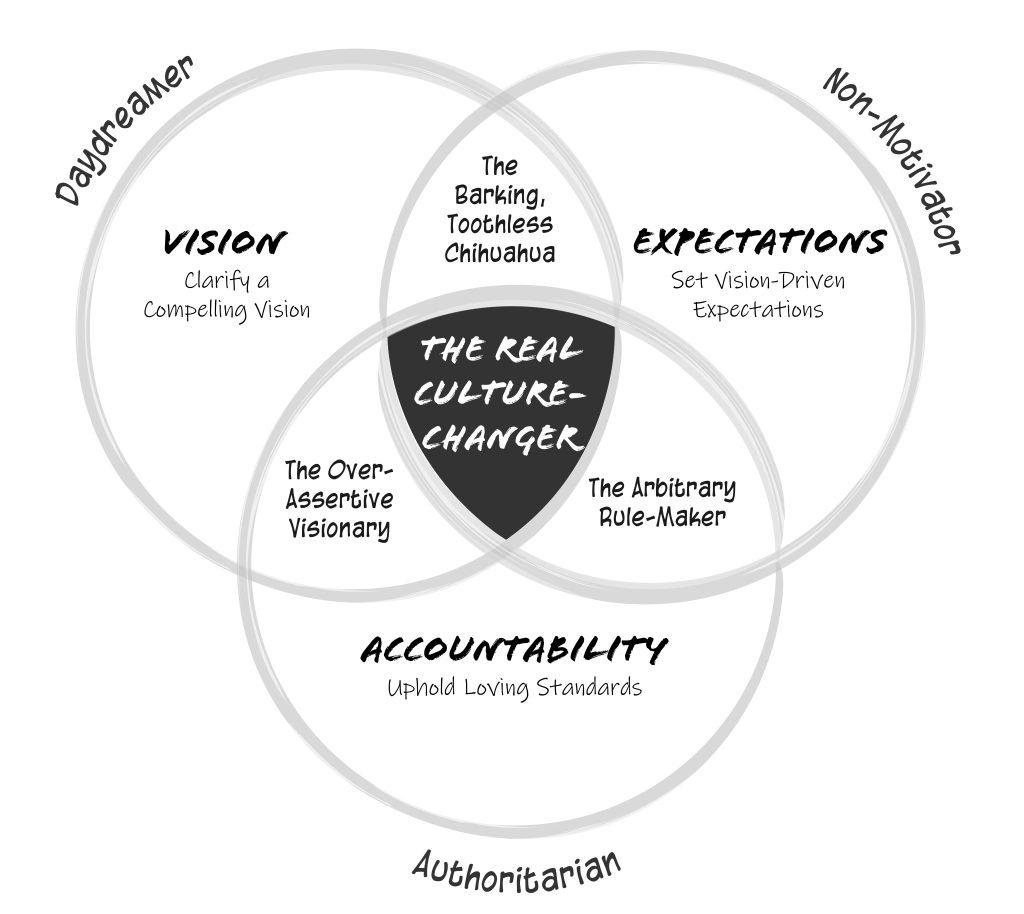BAD:
It’s the beginning of rehearsal, the band and vocalists are ready to go and — “Whoa! Wait, where’s _________?”
Whichever person it is — drummer, guitarist, sound tech, alto — it doesn’t matter. The team isn’t ready. That’s bad. But it could be worse.
WORSE:
You scan the platform at the start of rehearsal only to find half the team NOT there, and the other half are still setting up. But it gets worse than this.
WORST:
You, the leader, fly in late and attempt to jumpstart a rehearsal to make up for lost time. Unfortunately, you find the team is following your lead. (See the “Worse” scenario.)
Late.
Tardy.
Unpunctual.
Not prompt.
Whatever we call it, it’s hurting our worship teams more than we think. So we’re going to look at eight ways that lateness is damaging our ministries. Then, we’ll dig in to few practical steps that leaders can do to change this culture-corroding issue.
EIGHT LATE LOSSES
LOSS #1: LOSS OF REHEARSAL TIME.
This loss means rehearsal goes longer or some of the preparation gets pushed to Sunday morning.
LOSS #2: LOSS OF SOUNDCHECK/WARM-UP TIME.
Unlike a midweek rehearsal, the Sunday morning soundcheck is NOT open-ended. So whatever time the late person wasted is now gone.
LOSS #3: LOSS OF RESPECT AMONG OTHER TEAM MEMBERS.
People may, on the surface, seem to excuse or tolerate a chronically late team member. But deep down, resentment and frustration grow over time: “This person is wasting our time. AGAIN.”
And the loss of respect doesn’t just happen for the offending late person. Eventually, the other team members will lose respect for the leader who lets this lateness happen.
LOSS #4: LOSS OF FOCUS FOR THE TEAM MEMBER.
It takes awhile for the team member to settle in and focus when they’ve just blown in from something else. So the loss goes beyond just the time they were absent.
LOSS #5: LOSS OF FOCUS FOR THE LEADER.
Late people can throw a worship leader off her game. A well-planned rehearsal can become a piecemeal practice session. Just one tardy team member may not knock the whole rehearsal sideways.
But add another issue, like a random tech glitch to the rehearsal, and the late person is compounding the frustration level of the leader.
LOSS #6: LOSS OF TIME AND ENERGY OUTSIDE REHEARSAL.
When a leader has to confront a chronically late person, he/she is likely to experience confrontation anxiety. So now an in-rehearsal issue is requiring time and emotional energy outside of rehearsal.
LOSS #7: LOSS OF ACCOUNTABILITY.
When tardy team members go unchecked, it gives permission for others to ignore the start time. And when the leader is the chronically late person, it screams, “Be late!” to the whole team.
LOSS #8: LOSS OF FOUNDATIONAL VALUES.
Showing up on time should be a foundational behavior for any worship team. If a team loses the expectation of that behavior, other values start slipping.
Five minutes here or there will not cause widespread bedlam and anarchy. But it will begin to erode the standards of your team.
SEVEN STEPS TO LATE-PROOF YOUR TEAM
So what can you do to begin to late-proof your worship team? Here are seven tips to change the culture of lateness on your team.
1. NEVER accommodate the late or penalize the prompt. If you want to start rehearsal at 6:45, don’t move rehearsal time to 6:30. That enables the late people and punishes those who show up on time.
2. Talk with your team about why promptness matters. Those “Late Losses” above are an easy place to start.
3. As the leader, be early (AND the most prepared person in the room).When you’re on top of your game, you can roll with issues better. And, most importantly, you’re setting the example.
4. Change your language. For my team, I changed our “start” time to “ready to play” time. It communicates that on-time ≠ arrival time. And with that…
5. Start on time. Every time. Yes, even if you’re missing half your band. Most people walking into a rehearsal already in progress should feel a healthy dose of social pressure to not let that happen again.
But there’s always that one guy (or girl). So…
6. Confront the chronically late person. Show grace AND speak truth. Lead with questions that show concern for them, not accusations that condemn.
7. Run a fun, but efficient rehearsal. Late team members will try to justify their tardiness with, “But we waste so much time at the beginning anyway….” Take away those excuses.
CHANGING TEAM HABITS
It’s good to remember that promptness and lateness are both promptness and lateness are both foundational habits for your worship ministry.
On one habit you can build a culture of high standards and respect among the team members. The other keeps the bar perpetually low and sows disunity within the team.
It may seem impossible to change ingrained team habits, but but check out this graphic:
 I talk about this concept in my book, Exceptional Every Sunday.
I talk about this concept in my book, Exceptional Every Sunday.
There’s an entire chapter for developing your leadership muscle in each of these three areas — vision, expectations, and accountability. And then I dig into how to make them all work together.
(And bonus — I use the issue of team member lateness to illustrate the point.)
 Right now, you can get the digital version of Exceptional Every Sunday: Build a Worship Team That’s Consistently Excellent Week after Week (No Matter Who’s on the Platform) for a low-low price. And, you get bonus bundle of trainings and tools to help you implement it quicker.
Right now, you can get the digital version of Exceptional Every Sunday: Build a Worship Team That’s Consistently Excellent Week after Week (No Matter Who’s on the Platform) for a low-low price. And, you get bonus bundle of trainings and tools to help you implement it quicker.
Get Exceptional Every Sunday here.
(This article was originally published Feb 12, 2018. Updated March 27, 2023)
Stuck?
Learn how to level-up your team with this free video training.







